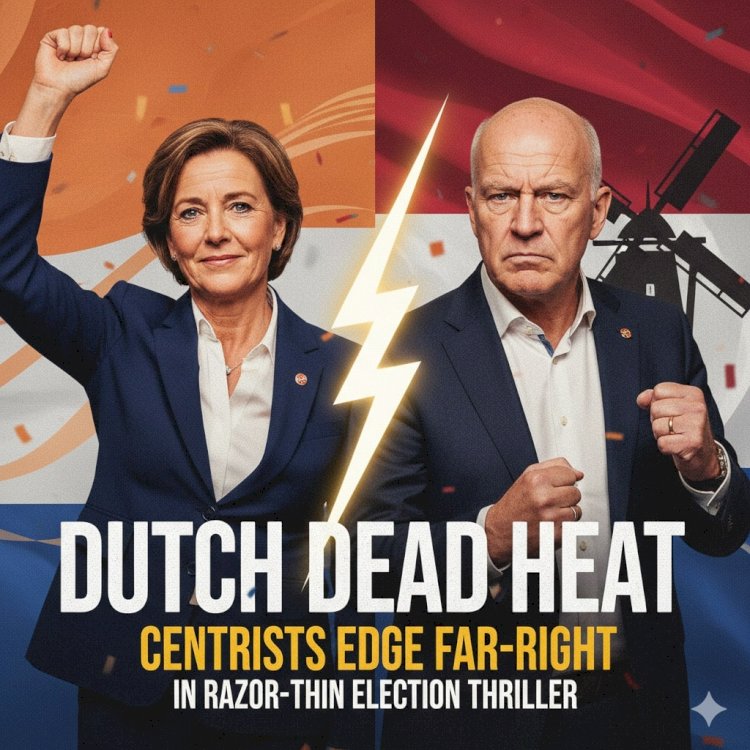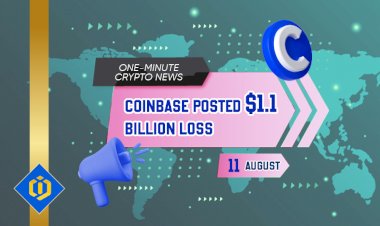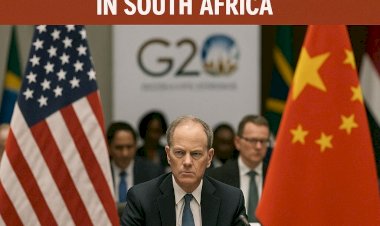Dutch Dead Heat: Centrists Edge Far-Right in Razor-Thin Election Thriller

The Hague, Netherlands – In a nail-biter that kept Europe on the edge of its seat, the Netherlands' snap general election delivered a stunning rebuke to far-right firebrand Geert Wilders, with centrist liberals from the D66 party surging to a historic tie for first place. As ballot boxes closed on October 29, the race between D66's youthful leader Rob Jetten and Wilders' anti-immigration Party for Freedom (PVV) remained too close to call, with both parties locked at 26 seats in the 150-member House of Representatives.
The razor-thin margin – a mere 15,000 votes separating the frontrunners after Amsterdam's urban ballots tipped the scales – underscores a fractured electorate grappling with housing woes, migration pressures, and a post-pandemic economy that's left young voters feeling squeezed. With 98% of votes tallied, D66's near-tripling of its 2023 haul from 9 seats to 26 marks the election's biggest swing, while PVV hemorrhaged 12 seats from its shock 2023 victory of 37. "This is the best result D66 has ever achieved," a jubilant Jetten, 38, declared to cheering supporters in Leiden, his voice echoing the party's slogan: "Het kan wel" – It is possible.
From Coalition Collapse to Ballot Box Drama
The chaos leading to this vote was pure Dutch political theater. Wilders, the platinum-blond provocateur who's spent two decades railing against "Islamization," stormed to victory in 2023 on a tide of anti-migrant fury. He cobbled together a conservative coalition – including the VVD, NSC, and BBB – but cracks appeared almost immediately. Tensions boiled over asylum policy: Wilders demanded a full freeze on new arrivals, clashing with partners wary of EU backlash and humanitarian fallout.
By June 2025, PVV yanked its support, toppling the Schoof cabinet. The exodus continued in August when NSC bolted over disagreements on Israel-Gaza sanctions, leaving the government in tatters. Enter the snap election, called for October 29 – a full three years ahead of schedule. Polls had Wilders clinging to a slim lead, but a late D66 rally, fueled by Jetten's telegenic charm and promises of "positive politics," flipped the script.
Voter turnout hit 82%, up from 2023, with blank ballots doubling to over 40,000 – a silent scream of disillusionment amid the 11-party scrum. Housing emerged as the sleeper issue: With a 400,000-unit shortage in a nation of 18 million, young families and millennials flocked to D66's blueprint for 100,000 affordable homes annually, laced with green incentives. Migration still loomed large – overcrowded asylum centers in Ter Apel became campaign fodder – but even Wilders' base showed fatigue with his unyielding rhetoric.
Seat Shifts: A Centrist Comeback Kid
| Party | Leader | 2023 Seats | 2025 Seats | Change |
|---|---|---|---|---|
| D66 (Centrists/Liberals) | Rob Jetten | 9 | 26 | +17 |
| PVV (Far-Right) | Geert Wilders | 37 | 26 | -11 |
| VVD (Conservative-Liberals) | Dilan Yeşilgöz | 24 | 22 | -2 |
| GL-PvdA (Green-Left Alliance) | Frans Timmermans | 25 | 24 | -1 |
| CDA (Christian Democrats) | Henri Bontenbal | 5 | 20 | +15 |
| NSC (New Social Contract) | Nicolien van Vroonhoven | 20 | 10 | -10 |
| BBB (Farmers-Citizen Movement) | Caroline van der Plas | 7 | 8 | +1 |
| Others (SP, PvdD, FvD, etc.) | Various | 23 | 14 | -9 |
The table tells the tale: D66's meteoric rise came at the expense of Wilders' PVV and the imploding NSC, while the VVD held steady as the elder statesman of the right. The GL-PvdA alliance, led by the departing Timmermans, clung to second place but couldn't capitalize on left-wing momentum. Christian Democrats staged a quiet revival, appealing to rural voters alienated by urban-focused debates. Farther afield, the Socialist Party and animal rights PvdD scraped by with minimal gains, as Wilders' former allies like Forum for Democracy faded into irrelevance.
Expat votes – some 90,000 still pending from abroad – could prove decisive. In 2023, they favored progressives; insiders bet on another D66 boost, potentially crowning Jetten the Netherlands' youngest-ever prime minister – and its first openly gay one.
Wilders' Wobble: From Kingmaker to Also-Ran?
For Wilders, the night was a bitter pill. His PVV, once the undisputed election darling, watched helplessly as gains in Rotterdam's working-class districts were offset by losses in suburban strongholds. "The Dutch people have spoken, but the conversation isn't over," Wilders posted on X, vowing to "fight for our sovereignty" from the opposition benches. Yet with mainstream parties – VVD chief Dilan Yeşilgöz chief among them – swearing off any PVV partnership, his path to power looks blocked. It's a far cry from 2023, when his win sent shockwaves through Brussels and emboldened Europe's populist vanguard.
Jetten, by contrast, radiated optimism. Flanked by D66 faithful in The Hague, he pledged a "government of hope" tackling the housing crunch head-on: tax breaks for first-time buyers, streamlined permits for eco-builds, and a migrant integration overhaul that balances compassion with capacity. "We feel the heavy responsibility – not just to our voters, but to all Dutch who want to think big again," he said, eyes on a potential rainbow coalition with VVD, GL-PvdA, and CDA.
Coalition Carousel: Months of Musical Chairs Ahead
Don't expect a government anytime soon – Dutch coalition-building is an art form that rivals tulip farming in patience. Parliamentary chair Martin Bosma (PVV) delayed the first "scout" meeting until Tuesday, awaiting final tallies. If D66 edges ahead, Jetten leads talks; a tie might trigger horse-trading worthy of a reality show.
Across the continent, the verdict landed like a cool North Sea breeze. In Brussels, centrist allies hailed it as a "setback for the extremes," with EU Commission President Ursula von der Leyen tweeting support for "stable, pro-European governance." French far-right leader Marine Le Pen, however, decried a "centrist stitch-up," while Britain's Reform UK chief Nigel Farage lamented Wilders' "unfair exclusion."
As dawn broke over the canals of Amsterdam, one thing was clear: The Netherlands, ever the bellwether of European moods, has dialed back the populism dial – at least for now. Whether Jetten's "it is possible" proves prophetic, or if Wilders stages a sequel comeback, remains the stuff of late-night punditry. In a year of global upheaval, this tulip-tinted tie offers a whisper of moderation amid the roar.

 content-team
content-team 


















